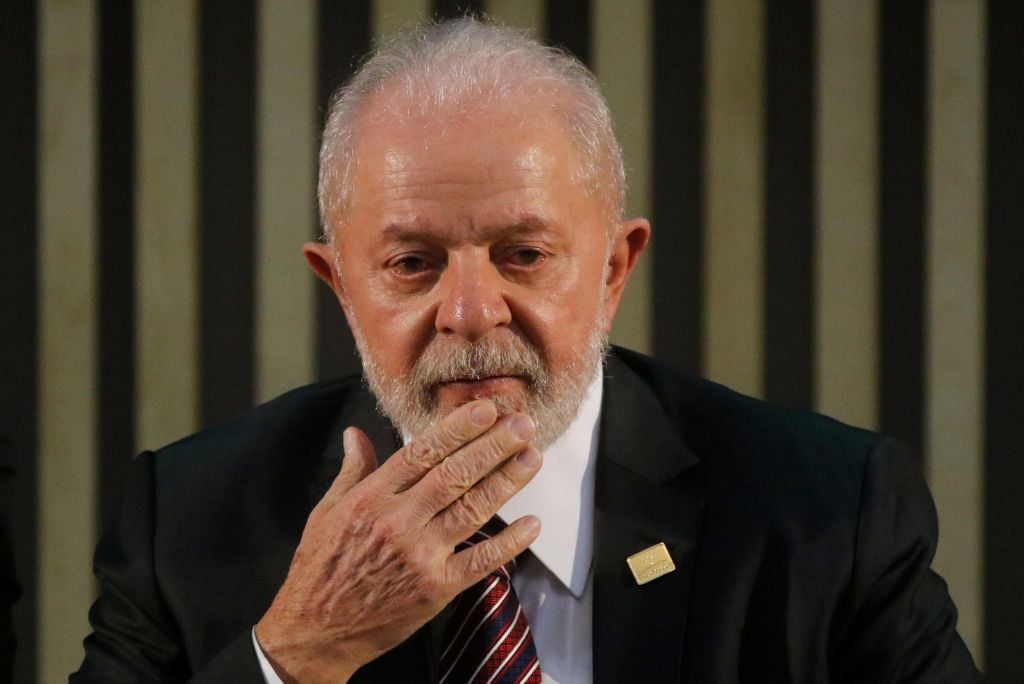In Brazil’s recent municipal elections, the ruling Workers’ Party (PT) led by President Lula Da Silva faced a significant setback, failing to secure any mayoral positions in state capitals during the first round of voting. This defeat highlights a notable shift in voter sentiment towards right-wing and center-right candidates, as reported by the Brazilian outlet Oeste. Brazil’s municipal elections are held in two stages, with the initial round just completed. Given Brazil’s political landscape comprising 26 states and its federal capital, the results of this election signal a dramatic transformation in political allegiance among voters that may shape future elections.
The fallout from this defeat leaves the PT with only four possible opportunities to clinch mayoral victories in the second round, specifically in the cities of Natal, Cuiabá, Fortaleza, and Porto Alegre, where PT-affiliated candidates managed to secure second place. However, in all other state capitals, the party did not rank among the top two candidates, demonstrating a widespread rejection of their governance. This trend suggests a significant decline in the party’s support within urban areas compared to the party’s previous standings, indicating a potential shift in political dynamics heading into upcoming elections.
The results reflect a national discontent towards the Workers’ Party, showcasing losses across every state. The extent of the PT’s struggles in the election raises questions about its long-term viability and the effectiveness of Lula’s administration. Just two years after Lula’s victorious presidential campaign, strong support from cities like Belo Horizonte appears to have evaporated, with Bolsonaro-backed candidates now leading municipal races, including the significant match-up between Bruno Engler and PT-endorsed Fuad Noman in Belo Horizonte.
This trend of losses extends to various regions where Lula experienced electoral success in the 2022 presidential election. In cities such as Alagoas, Macapá, and Rio de Janeiro, candidates allied with former President Jair Bolsonaro emerged victorious, further indicating potential vulnerabilities for the PT. The pattern suggests that Lula’s leadership is failing to resonate with voters, as evidenced by the PT’s inability to maintain significant influence even in regions previously dominated by Lula, highlighting an alarming decline for the party.
The political landscape remains complex due to underlying tensions regarding the legitimacy of the 2022 election results. Despite Lula securing the presidency, Bolsonaro won four out of five regions, suggesting persistent support for his ideology. Allegations of electoral fraud have been voiced, particularly by outlets such as La Derecha Diario, although the Brazilian judiciary has opted to suppress such discourse rather than engage with the claims. This response indicates a broader narrative of contentious politics in Brazil, where debates over election integrity and governmental transparency continue to fester without resolution.
As Brazilian voters increasingly express their dissatisfaction with Lula’s policies at the ballot box, the implications of the recent elections are profound. The upcoming second round of voting will serve as a litmus test not only for the Workers’ Party but also for the broader political environment in Brazil. Whether this election cycle marks a significant pivot away from PT dominance or just a temporary decline will depend on the outcomes of the remaining races, indicating potential shifts in Brazil’s political landscape as electorate sentiments evolve.

